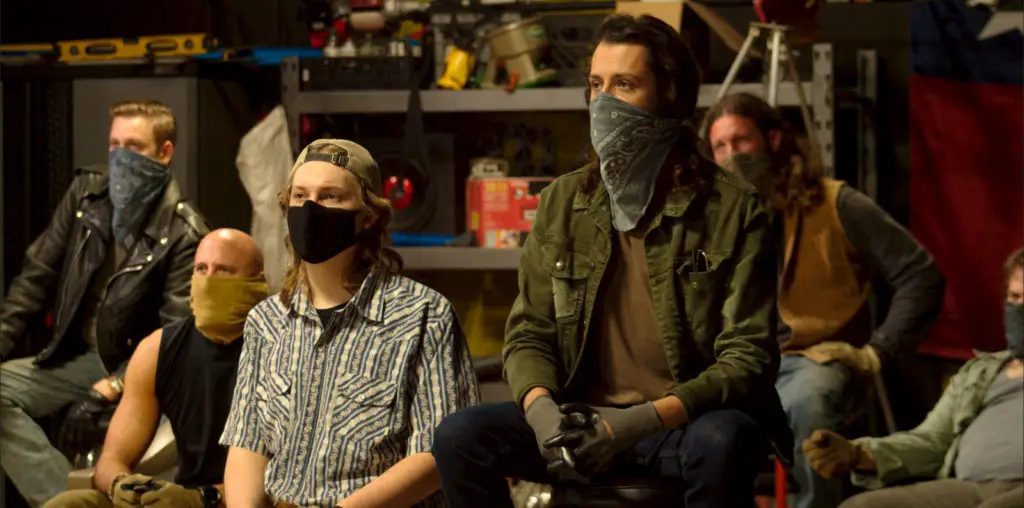
BOOTLEG FILES 572: “The Search for the Nile” (1971 BBC mini-series).
LAST SEEN: We cannot confirm the last public exhibition of this title.
AMERICAN HOME VIDEO: A nontheatrical VHS video release occurred in the 1980s.
REASON FOR BOOTLEG STATUS: I have no clue why this is still unavailable.
CHANCES OF SEEING A COMMERCIAL DVD RELEASE: If anything deserves to be released, this is it.
In January 1972, NBC took a break from its usual line-up of programming to offer American viewers something very unusual: a BBC mini-series about the efforts of 19th century explorers to locate the mysterious source of the Nile River. This was not the first time that an American network interrupted its regular schedule to accommodate a British mini-series: earlier in the season, CBS gave screen time to “The Six Wives of Henry VIII” while PBS was beginning to offer prime time slots to such British offerings as “The Forsyte Saga” and “The First Churchills.”
But while these other productions where highly distinguished, “The Search for the Nile” broke new ground by moving the drama out of the studio settings and into extraordinary African locations. (This was achieved, in large part, thanks to financing by Time-Life Television Productions, which took credit as the co-producer with BBC on the series.) For the era, it was highly unusual for a television mini-series to have so much of its footage shot on a distant location – but rather than treat Africa like an exotic travelogue setting, “The Search for the Nile” presented the glory and hazards of the continent in an honest manner that was without precedent.
Even more stunning was the decision by writers Michael Hastings and Derek Marlowe to present the explorers as highly imperfect – and, often, despicable – characters that routinely back-stabbed and badmouthed each other. For American viewers that were used to a hero-versus-villain scenario, “The Search for the Nile” was a jolting experience by offering a scenario where truly complex individuals were presented without any trace of sugarcoating.
From the beginning of recorded time, the Mediterranean cultures were unable to determine where the Nile flowed from. Attempts to sail down the river into the heart of Africa were blocked by the impenetrable Sudd Swamp in the area now known as South Sudan. During the 19th century, a mania among would-be adventurers to solve and conquer the world’s various geographic mysteries and challenges sparked a renewed interest in identifying the Nile’s unknown source.
As depicted in “The Search for Nile,” the leading figures in this endeavor were a fairly bizarre bunch, even by the eccentric standards of that era. Front and center was Richard Francis Burton, a flamboyant explorer who sought to break as many cultural taboos as possible, ranging from a pilgrimage to Mecca in the guise of a Persian Muslim (he would have been crucified had his real identity been revealed) to openly insulting the proper hostesses of society functions. Also in the mix was John Hanning Speke, a pompous military officer with an interest in using science to promote racism.
Also on hand was Samuel Baker, who traveled through Africa with an Eastern European woman who may or may not have been his wife – stories that he obtained her from a slave sale in Ottoman-occupied Bulgaria have never been properly confirmed. Then there was David Livingstone, a missionary who was obsessed with bringing Christianity and ending African slave trading. His disappearance brought about Welsh journalist whose hunt for the missing Livingstone would evolve into another aspect of the Nile hunt.
Due to the clash of oversized personalities, the only possible way to enable the proper recreation of this vast human drama would be through a multi-installment mini-series. In comparison, Bob Rafelson’s 1990 feature film “Mountains of the Moon” – the only other attempt to dramatize the exploration of the Nile’s source – radically telescoped the full sweep of this epic adventure.
“The Search for the Nile” goes into great depth to detail the various hardships and heartaches that went into the Nile explorations. The physical struggles are depicted with uncommon harshness, and the series’ three directors – Christopher Ralling, Fred Burnley and Richard Marquand – do a brave job in offering a detailed understanding of the perils and sufferings that befell the explorers, most notably James Grant, whose right leg became infected during his expedition with Speke in pursuit of the body of water that was later named Lake Victoria.
“The Search for the Nile” also goes into painful lengths to detail the vituperative feud between Burton and Speke. Once comrades in this search, the explorers became bitter enemies and each accused the other of dishonesty and grandstanding. As presented here, Kenneth Haigh’s Burton is a sardonic, vain and melodramatic figure that revels in his self-created image as an outsider in Victorian society, yet the anger that he portrays when Speke takes credit for discovering the Nile’s source is utterly astonishing. For his part, John Quentin’s Speke captures all of the vices and none of the virtues of Victorian society – his accomplishments may have been heroic in scope, but the dismal nature of his behavior makes it impossible to embrace him.
Also worthy of consideration is Michael Hough’s David Livingstone, whose mania for bringing his concept of Christian justice to Africa is presented with a subtle degree of sincerity – the production mercifully abstains from the too-easy temptation of dismissing Livingstone as a kook – and Barbara Leigh-Hunt as Isabel Arundel, who displays harrowing masochism as Burton’s long-suffering wife. And linking the entire story together is James Mason, offering an erudite narration that highlights the various triumphs and tragedies of this story.
“The Search for the Nile” premiered in the U.K. in September 1971 and arrived on NBC four months later. It received a Golden Globe nomination as Best TV Special and it won the Emmy as “Special Classification of Outstanding Program and Individual Achievement – Docu-Drama.” The latter honor was very peculiar, because two other British mini-series imports – “The Six Wives of Henry VIII” and the PBS-broadcast “Elizabeth R.” – were nominated for both Outstanding Series and for the now-defunct category of Outstanding New Series (with “Elizabeth R.” winning both awards, as well as the awards in Best Actress in a Dramatic Series and Outstanding Single Performance by an Actress in a Leading Role for its star, Glenda Jackson).
Although well received by critics, “The Search for the Nile” was not the rating success that NBC hoped for, and the U.S. commercial networks decided not to pursue the import additional British mini-series – that became the exclusive domain of PBS, which offered a rerun of “The Search for the Nile” in the late 1980s. There was a brief VHS video release of the series via Time-Life during the 1980s for the nontheatrical market, but to date there has been no DVD release in the U.S. market.
The absence of “The Search for the Nile” from home entertainment channels is a major shame, because this is a handsome, stirring and often disturbing production. Bootleg DVDs are easy to find online, although the visual quality of these offerings can be a bit shaky (they were videotaped off the PBS broadcast in the late 1980s). Still, a second-rate presentation of “The Search for the Nile” is better than nothing at all – and, hopefully, BBC and Time-Life can settle whatever problems are holding up a proper re-release of this marvelous work.
IMPORTANT NOTICE: While this weekly column acknowledges the presence of rare film and television productions through the so-called collector-to-collector market, this should not be seen as encouraging or condoning the unauthorized duplication and distribution of copyright-protected material, either through DVDs or Blu-ray discs or through postings on Internet video sites.

